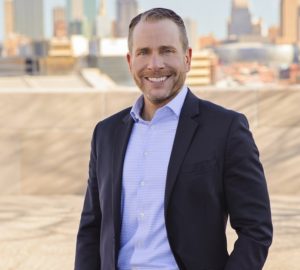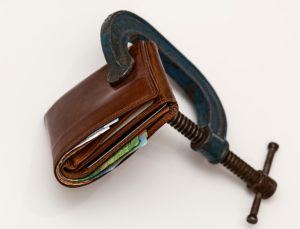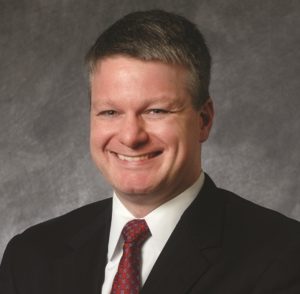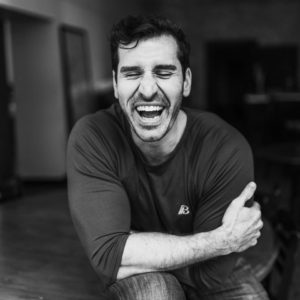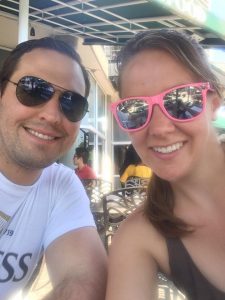Katie Welsh [0:37]
Welcome to
Denis O’Brien [0:38]
Episode 187 compound interest will make you poor or rich. Hey money clan, a very warm welcome to the chain of wealth podcast. I’m your host, Denis O’Bryan.
Katie Welsh [0:50]
And I’m Katie Welsh.
Denis O’Brien [0:52]
So Katie, I feel like so often in personal finance, we hear compound interest thrown around. And today we’re going to do a super deep dive in to it.
Katie Welsh [1:1]
Yeah, well, I will be the first to admit that sometimes when we’re talking to people who are super knowledgeable about personal finance and money and all that jazz, so little intimidating because some of the things we talked about, I don’t particularly know the exact specifics about and I just don’t really feel like the right time to ask about basic things. I’m glad we’re talking about this.
Denis O’Brien [1:25]
Yeah. So compound interest is something that if you are or if you study business, or something like that, this would have been taught sort of in the first year of college. But yeah, it’s a complicated topic.
Katie Welsh [1:37]
But for the rest of us normal. Yeah, we don’t all know.
Denis O’Brien [1:41]
Yeah, so today, we’re gonna we’re gonna do a deep dive into it and I think it’s going to be really beneficial. And to be honest, Kate, this topic will make you rich or poor. It’s It’s as simple as that.
Katie Welsh [1:50]
Hmm.
Denis O’Brien [2:20]
All right. Well, before we dive right in, if you guys haven’t already, don’t forget to join our Facebook community, head on over to chainofwealth.com/group. And come and tell us your story. Alright Kate you ready to dive right in?
Katie Welsh [2:4]
Yep.
Denis O’Brien [2:4]
Fantastic. Let’s do it.
Unknown Speaker [2:7]
Welcome to chain of wealth. here’s your host, Denis inspiring you to begin your journey of financial freedom.
Denis O’Brien [2:20]
Alright Kate, so compound interest. So first off, what is compound interest.
Katie Welsh [2:54]
Well compound interest is hopefully working in your favor because there can be negative compound interest, but we’re going to be a little optimistic. Compound Interest is when the money you make compounds or doubles or grows.
Denis O’Brien [3:14]
Yeah, so it grows. So let’s take a step back first, what is simple interest?
Katie Welsh [2:52]
It does not compound.
Denis O’Brien [2:54]
Very profound. So simple interest, let’s use an easy example. So let’s say we take $100 and put it into our bank account. That bank account yields 10% interest a year. After one year, how much interest should you have?
Katie Welsh [3:12]
$110?
Denis O’Brien [3:14]
Yeah, correct. So your balance should be $110 after one year. So that’s under a simple interest kind of idea that the money doesn’t compound. So compound interest says, Well, what does hundred dollars and you’re getting 10% a year, but that’s a compounded number. Well, it will be compounded. So what actually happens is, you leave the money in the bank account for and it’s $100 after one month. Then what happens is they pay you interest after one month.
Katie Welsh [3:47]
Okay.
Denis O’Brien [3:48]
Okay, And they pay it on $100. And they say, well, there’s $100, and it’s yielding total percent interest, and we’ve had one month so that money is now let’s say, it is 100 and hundred dollars and 50 cents, easy math right, it says $100 and 50 cents,
Katie Welsh [4:9]
okay?
Denis O’Brien [4:39]
Okay. So under compounding interest, what will happen is the next month, they will pay you interest again. However, instead of paying you interest on the hundred dollars, they’re going to pay you interest on the hundred dollars plus the 50 cents.
Katie Welsh [4:26]
Okay
Denis O’Brien [4:27]
So in other words, it’s compounded, which means that the interest that you got paid, gets added to the original balance and that original balance then compounds and you get paid interest on that new value.
Katie Welsh [4:39]
Okay,
Denis O’Brien [4:39]
So after one year, in a compound interesting model, you probably won’t have $110, you’ll probably have closer to 111. And the reason is because it’s been compounding.
Katie Welsh [4:51]
Okay.
Denis O’Brien [5:21]
So in other words, compound interest allows your money to grow at almost an exponential rate, because you’re not just getting the same amount every month, a month, that’s of interest that you get paid every month, actually will increase as your balance will increase. And granted won’t be by much. But over a long period of time. And with enough money saved up. It can turn into a significant amount of money.
Katie Welsh [5:16]
Well, yeah, especially over 40 or 50 years of a saving lifetime.
Denis O’Brien [5:21]
Well, that’s exactly it. And you know, like you could even do the math, if you would say, All right, let’s take $100 just a hundred dollars invested over 40 years simple interest versus compound interest, how much difference would there be in money, and you’d be shocked! How much of a difference there is.
Katie Welsh [5:38]
Good to know. So I have a question for you, then.
Denis O’Brien [6:9]
What’s your question.
Katie Welsh [5:41]
Whenever we talked to people and they’re talking about retiring and, you know, kind of projecting their life and everything, they come up with this phrase, the rule of 72. And I’m gonna be honest, I have no idea what that rule is.
Denis O’Brien [5:59]
Kate. It’s impressive. That We’re 187 episodes deep into Chain of Wealth. And you know, what the rule of 72 is as a personal finance person.
Katie Welsh [6:6]
It is embarrassing I will admit,
Denis O’Brien [6:9]
Well, okay, so the rule of 72. And to be frank, I think most of our listeners actually don’t know what the rule of 72 is.
Katie Welsh [6:14]
Well that’s what I really ment I want to make sure that everybody else also understands that the rule of 72.
Denis O’Brien [6:23]
Sure, so the rule of 72 is a quick and easy way to figure out how long it’ll take your money to double given whatever interest rates. So in other words, say you have an interest rate of 5%. And you divide that number by 72, you’re going to get an answer of 14.4. So in other words, it will take 14.4 years to double that is the estimated number based on the rule of 72. But if you actually calculate how long it’ll actually take to double, the answer is 14.21. So there’s a slight variation with the rule of 72. However, as an approximation, it’s a really good way to figure out how long it will take for your money to double. So if you invest money at 5% per year of 14 years, it’ll take that long to double. But let’s say we crank that up abit. But let’s say we have only an interest rate of 10% a year. So at 10% a year, it’ll take 7.2 years to double.
Katie Welsh [7:27]
Not long at all.
Denis O’Brien [7:29]
Not long at all. And I mean, you may think it’s a long time back. All right. Well, it is seven years, seven years is a long time.
Katie Welsh [7:35]
But that goes by quickly.
Denis O’Brien [7:37]
Goes by quickly yeah.
Katie Welsh [7:38]
I have shoes that are older than that.
Denis O’Brien [7:40]
Is that really the answer to how long something is? If you have shoes that old?
Katie Welsh [7:46]
Probably not?
Denis O’Brien [7:49]
Love it? Yeah, so the rule of 72, super, super great way to figure out how long it’ll take for your money to double. And Kate, the important thing about the rule of 72 is that it takes into account this compound interest idea. So your mind is constantly compounding every month, it’s going to be compounding. I must be honest, it’s not constantly compounding. That’s another thing that can happen with money. Constantly. Compounding is where instead of compounding, like monthly, it’ll compound every day, which grows your money even faster. It’s literally an exponential way.
Katie Welsh [8:54]
Yeah.
Denis O’Brien [8:55]
But doing it every month is still not bad at all. And yeah, it’s an absolutely great way to analyze as such this rule 72, how quickly your money will double.
Katie Welsh [8:37]
Okay, so I want to just to give a verbal visualization here. So let’s say that you open a bank account with $100.
Denis O’Brien [8:47]
Yeah.
Katie Welsh [8:48]
Now, the rule says that in seven years, it will double to $200.
Denis O’Brien [8:54]
Yeah.
Katie Welsh [8:55]
And then in another seven years, it will the 200 will double to $400.
Denis O’Brien [9:2]
Right.
Katie Welsh [9:3]
And there’s a pattern here and then seven more years ago by and then that 400 has doubled to
Denis O’Brien [9:9]
800.
Katie Welsh [9:39]
That’s it?
Denis O’Brien [9:40]
Yes, there’s this idea that it will grow in a compounding way. And you know, your $100 may seem smaller initially. But after 21 years, it’s worth $800, that’s a lot more than initial $100 you had sitting around, you know, literally collecting dust. And if you had that money sitting in a savings account that was basically not paying you any interest at all, you’ll probably still worth $100 and 21 years, maybe a little bit more, maybe
Katie Welsh [9:39]
Maybe $101.
Denis O’Brien [9:40]
If you’re lucky. So that goes to show the power of this compounding effect that is in play. And, you know, if you manage to put more money in into an account now, it’ll grow even faster. And I’d like to discuss a little bit more about this right after we take a quick break and say a very big thanks to our sponsor. Money clan when it comes to creating a financial plan, it’s one of the most important things you can do from a personal finance standpoint, Kate and I have both recently started using Savvi Financial, Savvi Financial is a great tool. It’s created by a team of data scientists, mathematicians and engineers. And the platform helps you take action, action, one of the most important things you can do when it comes to money, and they create a tailored plan based on your own financial goals and your own financial position, which is why we love them so much. Today, you can get access to SAVVI’s base plan for absolutely free. You can claim the offer by heading over to chainofwealth.com/savvi. That’s chainofwealth.com/savvi S A V V I
Katie Welsh [10:58]
Okay, Den. So I just want to recap what we have learned here that you can take money, and then interest rate, let’s say 10%. every seven years, that number will double earning you more money over and over and over again.
Denis O’Brien [11:44]
Yep. And that’s because you divided by that 10% by 72. And you got how many years? It’ll take.
Katie Welsh [11:22]
Okay, well, that sounds pretty promising.
Denis O’Brien [11:25]
Right? It does sound promising. Now, here’s the thing, Kate, is that compound interest works both ways. And hence the title of this podcast episode, compound interest will make you poor or rich. So if that hundred dollars, is money in the bank account for you, that’s absolutely great. Because in seven years, it’s going to double to $200.
Katie Welsh [11:44]
And that will make you rich,
Denis O’Brien [11:45]
Yes. But
Katie Welsh [11:46]
How’s it gonna make me poor?
Denis O’Brien [11:48]
If you owe that hundred dollars, and you don’t pay it off? And this compounding effect is working in reverse? You now owe, $200 and seven years
Katie Welsh [11:59]
Debt is what you’re saying?
Denis O’Brien [12:1]
Correct? If you owe any money to anyone, if there is an interest rate outstanding, or sorry, if you’re just paying interest on it, you’re going to owe more and more money as time goes on. And, you know, like a lot of people do this with a student loans. They say, Oh, no, I’m not going to pay it. And they just leave it. And what’s actually happening in the background is this idea of compounding, and you know, the rule 72 it’s working against them. And what can happen is, say put your student loan in forbearance and you defer it. After a long period of time, you know, your student loan could actually double if your interest rates high enough.
Katie Welsh [12:38]
That’s how people end up owing more money than what they graduated with.
Denis O’Brien [12:41]
Exactly. Yeah. So I mean, that that could also be from another other factors as well, like if people doing public service, loan forgiveness and their income based repayment program isn’t enough. But effectively, compound interest is super powerful thing. And there’s that quote by Albert Einstein, and it says that compound interest is the eighth wonder of the world. He who understands it, earns it, he who doesn’t, pays it. And I think that that is such a powerful thing. And you know, Albert Einstein was a genius. So I’m talking about what a genius said, effectively, if you don’t understand how compound interest works, you can pay a ton of extra money. And you can make some people very, very wealthy, by paying thousands and thousands of dollars extra.
Katie Welsh [13:30]
Just goes back to the age old, if you have debt, try to pay it off as soon as you can. So that you can start putting money away and having that compound interest to work in your favor, instead of it being a detriment.
Denis O’Brien [13:42]
Kate, that’s exactly it. It’s so powerful, and it’s working for you. And you know, like your money just starts growing and growing and growing. And you know, whether you’re invested in the stock market, or you’re invested in real estates, or you have money in bonds, whatever it is, that money is going to be working for you. And that power of 72 is going to be working in your favor, to help you earn more money and double your income. And, you know, like after a very long period of time, triple, quadruple, and you know, like that $100 will go super far now, where this really gets powerful. Is where you taking that hundred dollars a month, and you’re saving that hundred dollars a month, instead of just leaving a balance there and hoping it’s going to grow. By keep contributing each and every month, you do a number of things. Number one, you take advantage of dollar cost averaging in that’s you know, whether you’re buying the market, on a good day or a bad day, you’re always buying so you’re always in a great position. But number two, you’re really taking that compounding effect and making it significantly higher, because you’re putting more money into that account sooner rather than later. It’s really going to help you build those retirement accounts or investing accounts, and get out of debt. And, you know, Kate, we speak so often here about paying off your debt as quickly as you can, and making sacrifices and working extra hours and finding a side hustle and everything else. But that has such a big impact. Because you know, whatever extra money you’re able to scrounge around, that’s going directly into some sort of debt payoff for a retirement account, or something that’s going to be using this compound interest and working for you like the way you could rich guys is not by winning the lottery, it’s not by being at a job for 40 years, the way you get rich, is by investing your money and having it work for you over long period of time.
Katie Welsh [15:30]
I was watching a documentary The other day on some really wealthy influencers. And a lot of what they are saying is they don’t use the word hope. Like, you can have hope like in some situations, but when it comes to your money in your career, there’s no hope about it. It is it is work. And a quick story. And I’m sure a lot of people who have gotten out of debt can relate. When I was paying off my student loan, I felt like I was killing myself. I would wake up early, I would side hustle in the morning, sometimes I would go to work all day. And then I would come home and I’d side hustle at night. And then I do another side hustle if I had time. And then I’d make dinner and I go to bed and I wake up and I would do the whole thing again. It was awful. And I tried really hard not to be cranky about it. Because I was tired. And I would just Jeez, sometimes I would come home and I would just like lay on the couch and relax a little bit. But now, I got paid on Friday. And I’m finally at the point now where when I get paid, I don’t have a place for all my money that needs to go.
Denis O’Brien [16:45]
Right,
Katie Welsh [16:46]
It can actually say in my account for more than a minute. It was such a good empowering feeling that I’ve never had before.
Denis O’Brien [16:56]
So when you say stay in the account, you said about your savings account.
Katie Welsh [17:0]
Okay, let me rephrase that. I finally have money that I can put towards my investment.
Denis O’Brien [17:9]
Yeah,
Katie Welsh [17:10]
Without feeling like it should be going somewhere else.
Denis O’Brien [17:13]
Right. Yeah. And you know, like a, that’s how you get wealthy, like, it’s, it’s the long game, it’s putting money away, make it work, you take advantage of compound interest, and letting it grow. And, you know, like really reaping the benefits. And honestly, the more money you can get away earlier on, the more powerful compound interest will be. And obviously the type of investments that’s here and like if you’re in a more riskier or riskier investment that’s obviously going to grow that money faster. But you know, the other trade often of is this sustainable? And will this keep happening this way. And that’s why you sort of need to get into a diversified portfolio and we can chat about that in a future episode. But effectively, you want to get your money working for you as early as you can and get as much money into those accounts, which is why put in the graft now. Like work hard so that you’re in a better position and you make yourself a nice bed so you can sleep in it later.
Katie Welsh [18:8]
Yeah, comfortably.
Denis O’Brien [18:9]
Cool. Well, it’s been a fun and engaging episode. And we would love if you guys have any questions definitely hit us up. You can reach us at [email protected]. You can also tweet us it’s @chainofwealth on Twitter. And yeah, definitely follow us. You can also follow us on Instagram that’s @chainofwealth on Instagram. So we’ll catch you guys next time on another episode of Chain Of Wealth




